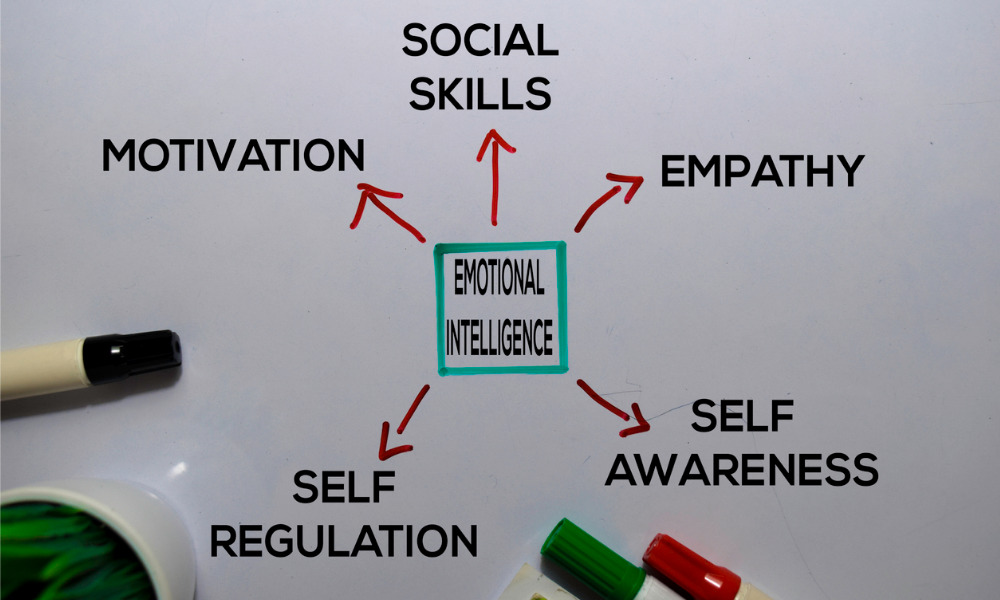Benefits of Emotional Intelligence in the Workplace
Emotional intelligence plays a crucial role in the success of individuals and organizations in the modern workplace. It refers to the ability to recognize, understand, and manage our own emotions, as well as the emotions of others. In this article, we will explore the numerous benefits that emotional intelligence brings to the workplace and how it can positively impact both individuals and teams.
Improved Communication and Collaboration
One of the key benefits of emotional intelligence in the workplace is improved communication and collaboration. When individuals have a high level of emotional intelligence, they are more adept at understanding and empathizing with their colleagues. This leads to better communication, as they can convey their thoughts and ideas effectively, while also actively listening to others. This enhanced communication fosters a collaborative environment where ideas can be shared openly and conflicts can be resolved constructively.
Enhanced Leadership Skills
Emotional intelligence is particularly valuable for leaders in the workplace. Leaders with high emotional intelligence are better equipped to understand and manage the emotions of their team members. This enables them to provide support, motivation, and guidance to their employees, leading to increased job satisfaction and productivity. Additionally, emotionally intelligent leaders are skilled at resolving conflicts and creating a positive work culture, which ultimately contributes to the overall success of the organization.
Increased Empathy and Understanding
Emotional intelligence fosters empathy and understanding among individuals in the workplace. When employees can understand and relate to the emotions of their colleagues, they are more likely to offer support and assistance when needed. This creates a sense of camaraderie and teamwork, as individuals feel valued and understood. Moreover, empathy allows for better conflict resolution, as it encourages individuals to approach disagreements with compassion and a willingness to find common ground.
Stress Reduction and Well-being
Emotional intelligence plays a crucial role in managing stress and promoting well-being in the workplace. Individuals with high emotional intelligence are better equipped to recognize and regulate their own emotions, allowing them to effectively manage stress and prevent burnout. Moreover, they can identify signs of stress in their colleagues and offer support when needed. This contributes to a healthier work environment where individuals feel supported and valued, leading to increased job satisfaction and overall well-being.
Increased Adaptability and Resilience
Another benefit of emotional intelligence in the workplace is increased adaptability and resilience. In today’s fast-paced and ever-changing business landscape, the ability to adapt to new situations and bounce back from setbacks is crucial. Emotionally intelligent individuals are more flexible and open to change, as they can regulate their emotions and approach challenges with a positive mindset. This adaptability and resilience contribute to the overall success of individuals and organizations in a rapidly evolving workplace.

Emotional intelligence is a valuable skill that brings numerous benefits to the workplace. From improved communication and collaboration to enhanced leadership skills, increased empathy and understanding, stress reduction and well-being, as well as increased adaptability and resilience, emotional intelligence plays a pivotal role in individual and organizational success. By developing and nurturing emotional intelligence, individuals and organizations can create a positive work environment that fosters productivity, innovation, and overall growth.
Frequently Asked Questions
1. What is emotional intelligence?
Emotional intelligence refers to the ability to recognize, understand, and manage our own emotions and the emotions of others.
2. How does emotional intelligence impact the workplace?
Emotional intelligence fosters better communication, teamwork, and collaboration among employees, leading to improved productivity and a positive work environment.
3. Can emotional intelligence be learned?
Yes, emotional intelligence can be developed and enhanced through self-awareness, empathy, and effective communication skills.
4. What are the benefits of emotional intelligence for leaders?
Leaders with high emotional intelligence are better able to inspire and motivate their teams, resolve conflicts, and make sound decisions based on empathy and understanding.
5. How does emotional intelligence contribute to employee satisfaction?
Emotionally intelligent leaders create a supportive and inclusive work culture, which leads to increased employee satisfaction, engagement, and loyalty.
6. Can emotional intelligence help in managing stress at work?
Yes, individuals with high emotional intelligence are better equipped to manage stress, regulate their emotions, and handle challenging situations effectively.
7. Does emotional intelligence impact customer relationships?
Emotionally intelligent employees are more empathetic and better able to understand and meet customer needs, resulting in stronger customer relationships and increased customer satisfaction.
8. How can emotional intelligence improve conflict resolution?
By understanding and managing emotions, individuals with high emotional intelligence can approach conflicts with empathy, open-mindedness, and effective communication, leading to more successful resolutions.
9. Are there any drawbacks to emotional intelligence in the workplace?
While emotional intelligence has numerous benefits, an excessive focus on emotions without considering other factors may lead to decision-making biases or overlooking crucial objective information.
10. How can organizations promote emotional intelligence in the workplace?
Organizations can promote emotional intelligence by providing training and development programs, fostering a culture that values emotional intelligence, and encouraging open communication and empathy among employees.




